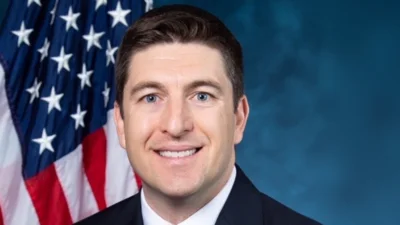Congressman Bryan Steil | Official U.S. House headshot
Congressman Bryan Steil | Official U.S. House headshot
Utilizing the X platform (previously referred to as Twitter), Wisconsin Rep. Bryan Steil addressed the ongoing fentanyl crisis within the state. On Aug. 17, Steil, alongside other officials, participated in a roundtable discussion to strategize measures against the illicit distribution of fentanyl.
"The fentanyl crisis is devastating our communities," Steil tweeted. "In Milwaukee County, over 600 people died from a fentanyl-related overdose last year."
The roundtable session took place in Milwaukee County, with similar discussions having been conducted in Kenosha County, Racine County and Rock County. Steil collaborated with other officials, including representatives from "U.S. Customs and Border Protection and North Central High Intensity Drug Trafficking Areas (HIDTA), state legislative leaders and medical experts." Steil is an advocate for the "HALT Fentanyl Act," legislation that designates fentanyl-related substances as a Schedule I drug. This legislation successfully passed the House, according to a press release.
Fentanyl overdoses have resulted in the loss of over 4,000 lives in Wisconsin, particularly impacting the 25 to 34 age demographic, according to findings from the Forward Analytics study. In the previous year alone, the U.S. Drug Enforcement Administration seized 379 million potentially fatal doses of fentanyl in diverse formulations. Despite being a prescription opioid for pain relief, fentanyl is often illicitly combined with other substances, including illicit drugs. Alarmingly, an incredibly tiny dose of just two milligrams of fentanyl can lead to lethal outcomes, according to WISN.
"The fight to keep drugs out of our communities goes beyond finished products," said U.S. Customs and Border Protection, according to a press release. "We're targeting the supply chains and the networks behind them while working with our federal, state, local and foreign partners to help with investigations. CBP continues to adapt and utilize all of its available resources, including canine teams and non-intrusive technology, to stop these dangerous drugs from entering our communities."





 Alerts Sign-up
Alerts Sign-up